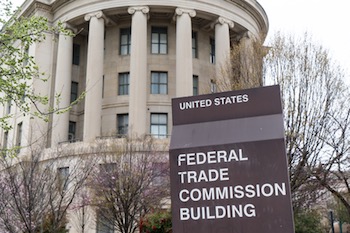Preliminary Injunction Against FTC’s Non-Compete Ban Marks Narrow But Key Victory for Opponents
“Judge Brown found that a plain reading of Section 6(g) [of the FTC Act] showed that this ‘housekeeping statute’ only provides authority to promulgate rules of agency procedure or practice.”
Last week, just before the holiday weekend, U.S. District Judge Ada Brown of the Northern District of Texas issued a memorandum opinion supporting the entry of a preliminary injunction against the Federal Trade Commission’s (FTC) final rule banning non-compete provisions from U.S. employment contracts. While the requested relief is limited to the plaintiffs named in the action, the ruling marks an important victory for business interests opposing the rule and intellectual property advocates warning about likely harms to trade secret protection within the United States.
Since the FTC unveiled its proposed rule in January 2023, industry stakeholders have pointed out that the agency’s non-compete ban could threaten businesses that rely upon trade secrets as a form of intellectual property protection. Around the time of the FTC’s announcement, trade secret expert James Pooley noted that the FTC’s proposed rule goes further in banning non-competes than recent legislation from the state of California, which has seen a major increase in trade secret litigation resulting from its new law. Despite this pushback, the FTC approved the final rule in a 3-2 vote this April.
Plain Reading of Section 6(g) of FTC Act Provides No Authority for Substantive Rules
Global tax service provider Ryan LLC filed its lawsuit challenging the FTC’s non-compete rules shortly after the agency’s April vote, with the U.S. Chamber of Commerce and several other business associations joining the suit as plaintiff-intervenors. Ryan challenged the FTC’s statutory and constitutional authority to promulgate the non-compete rule and also attacked the agency’s findings and conclusions as arbitrary and capricious under the provisions of the Administrative Procedure Act (APA). In early May, Ryan and the business association intervenors filed briefing in support of a preliminary injunction order preventing the FTC from enforcing the rule.
Judge Brown’s recent memorandum found that the plaintiffs had established a substantial likelihood of success on the merits of their challenge to the FTC’s statutory authority for promulgating the proposed rule. The FTC had argued that Section 6(g) of the FTC Act, codified at 15 U.S.C. § 46(g), provided authority to pass substantive rules to make rules for carrying out other provisions of the FTC Act, including rules related to unfair competition. However, Judge Brown found that a plain reading of Section 6(g) showed that this “housekeeping statute” only provides authority to promulgate rules of agency procedure or practice.
This reading of the statute was confirmed by the lack of any sanction enacted by Congress that would penalize the violation of rules passed under Section 6(g)’s authority. Such sanctions appear in Section 5 of the FTC Act, which governs the agency’s proceedings against alleged unfair competition. Although the D.C. Circuit had previously found some substantive rulemaking authority for the FTC under Section 6(g) in 1972’s National Petroleum Refiners Association v. FTC, Judge Brown’s memorandum opinion noted that the FTC had not promulgated a single substantive rule under its Section 6(g) authority from 1978 until its rule banning non-compete provisions.
Assessing the FTC’s non-compete rule under the APA’s arbitrary and capricious standard, Judge Brown found the rule to be overbroad, “impos[ing] a one-size-fits-all approach with no end date.” Studies relied upon by the FTC in support of its non-compete ban only examined the economic impacts of state laws on non-competes that were narrower in scope than the FTC’s final rule. Further, Judge Brown found that the FTC did not sufficiently consider alternatives that were less disruptive than a categorical ban on all non-compete provisions. Instead, the agency only offered the conclusory opinion that such analysis would have an in terrorem effect preventing the FTC’s ability to address the impact of non-competes on competition.
Scant Guidance on Nationwide Injunctions Limits Relief
Judge Brown also ruled that Ryan and other plaintiffs successfully showed that irreparable harm would result from their inability to rely on existing non-competes or enter into new non-compete agreements. While plaintiffs argued that the FTC’s ban would eliminate the ability to protect investments in specialized training or avoid free-riding by competitors, the agency argued that the only harm to business interests would be litigation expenses that don’t qualify as irreparable harm. However, noting that the plaintiffs had already shown a likelihood of success, Judge Brown found that the costs of compliance were not likely recoverable by the plaintiffs if the rule went into effect.
In examining the public interest factors supporting injunctive relief, Judge Brown ruled that the substantial economic impact of the FTC’s rule could be avoided without inflicting harm upon the agency. Judge Brown also cited cases concluding that non-compete enforcement promoted public interests, including the Southern District of Texas’ 2009 ruling in TransPerfect Translations v. Leslie.
Although Ryan and the plaintiff-intervenors sought a nationwide injunction, Judge Brown tailored relief specifically to the parties in the case, finding that the Chamber and other intervenors had not properly briefed the court on associational standing for their members. Although the Fifth Circuit previously affirmed nationwide relief for a preliminary injunction in Texas v. United States (2015), acknowledging the need for uniformity in immigration law, that ruling provided limited guidance on the appropriate circumstances for nationwide relief. Adding that the Fifth Circuit has also found concerns with standing and redressability with such a broad scope of relief, Judge Brown found that the plaintiffs offered very little briefing in support of a nationwide injunction here.
Steve Brachmann
Steve Brachmann is a graduate of the University at Buffalo School of Law, having earned his Juris Doctor in May 2022 and served as the President of the Intellectual Property […see more]







